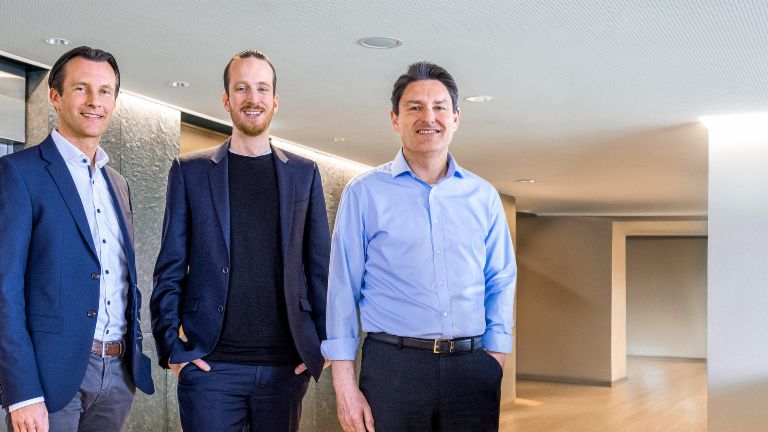- Every fourth invoice in Europe is paid late or not at all
- Payment delays and defaults lead to profit losses and higher interest costs
- About one-third of surveyed companies suspect deliberate non-payment by their customers.
- Spanish business customers are granted the longest payment terms in Europe.
Around 18 billion invoices are issued across the EU every year, but payment morale in Europe is in a bad state: Approximately one in four invoices is paid late (19 percent) or not at all (5 percent). This is shown by the EOS study "European Payment Practices 2025", for which 2,200 financial managers from 11 countries were surveyed.
In Spain payment practice is slightly above the European average: 20 percent of payments were made late, and 6 percent of receivables remained unpaid. Compared to other countries, payment morale is highest in Germany, Switzerland, and France. Here, 21 and 22 percent of payments, respectively, were received late or were uncollectible. In Romania, 29 percent of defaulting payers settle their invoices late or not at all. This makes payment morale the worst in a European comparison.
Apparently any customers consciously accept delayed payment.
Companies primarily cite short-term liquidity bottlenecks of their private customers (54 percent) and forgetfulness (51 percent) as reasons for late payment or even payment default. In Spain, also temporary liquidity shortages rank first with 47 percent, followed by forgetfulness (39 percent), long-term over-indebtedness and personal bankruptcy ranks third (29 percent).
For business customers, the main reasons cited on average across Europe are payment defaults by their own customers (61 percent) and the exploitation of supplier credits (57 percent). However, slow, non-digitized processing procedures (48 percent) also likely cause delays, according to the respondents. 43 percent see over-indebtedness and insolvencies of their business partners as the cause of unpaid invoices. In Spain, the picture is slightly different: Here, 57 percent of respondents cite the use of supplier credits as a reason, and 56 percent point to payment defaults by their own clients. In third place, with 46 percent, are slow and non-digitalized processing procedures as well as procedural errors in invoice processing (46 percent).
Particularly challenging for companies: Some customers apparently do not pay late by mistake. Around a third of companies assume that both business customers (31 percent) and private customers (34 percent) deliberately do not pay their invoices. In Spain, 27 percent suspect deliberate non-payment among their private customers and 34 percent among their business customers.
The companies have shortened their payment terms.
As a result of poor payment morale, European companies grant their customers less time to settle open invoices. At an average of 31 days, the set payment term is at a low in the ten-year trend (business and private customers). In 2015, it was still 34 days, and in 2022, even 37 days.
Private customers in Europe are granted an average of only 23 days to pay. Only Spanish companies are more generous: they allow a comparatively long period of 31 days. Business customers in Europe have an average payment term of 36 days, thus 13 days longer than private customers. In Spain business customers can expect as many as 42 days, which is the longest payment term in Europe.
The fact that defaulting private customers pay their invoices on average faster than defaulting business customers probably doesn't play a role here. They settle their invoices on average 19 days, and business customers 21 days, after the payment deadline. In Spain, private customers settle their liabilities an average of 21 days after the due date, while business customers take 22 days.
The consequences of poor payment morale for the economy are serious.
Payment delays and defaults are not without consequences: Almost every second company stated that it had suffered profit losses in the past because of this (48 percent), and 46 percent stated that this led to higher interest costs. For every fifth company (22 percent), investments were cut or halted. In France and Slovenia, every fifth company even had to fear for its existence; the European average is 16 percent. In Spain 53 percent of respondents report a loss of profits, 43 percent said they face higher interest expenses und 35 percent face liquidity shortfalls. 16 percent of Spanish companies stated that they reduced investments and 12 percent feared for their company’s survival.
Eva Griewel, CFO of the EOS Group: "The longer companies have to wait for their money, the more likely it is that the invoice will not be paid at all. In this respect, payment morale is an important indicator for potential payment defaults. If the number of such defaults increases sharply, it can drive creditor companies themselves into insolvency, with the resulting negative effects such as the loss of numerous jobs."
The weak economy offers little hope that payment behavior could improve in near future: Every fifth European company (22 percent) expects to face even more payment delays and defaults in the next two years. French companies look more hopefully ahead: Here, 19 percent of respondents state that, in their estimation, their customers' payment behavior will improve in the next two years. The most pessimistic companies are in Germany and Bulgaria: In these countries, only 8 percent and 9 percent, respectively, believe in an improvement in payment behavior, while 28 percent and 29 percent expect it to deteriorate. In Spain 16 percent believe that customer’s payment behavior will improve, 21 percent expect the opposite.
Professional receivables management ensures security.
"Our current study shows that poor payment morale in Europe represents a serious challenge for companies. Although NPL (Non Performing Loans) volumes at banks are currently at a low level overall, we must not underestimate the impact of delayed or outstanding payments. Companies should prepare, because this development places high demands on companies' liquidity management," warns CEO Marwin Ramcke.

For creditors worldwide, receivables management is becoming increasingly complex and riskier, also due to the globally uncertain situation.
The consequences of poor payment morale for creditors can be mitigated with professional receivables management. However, so far only a minority manages their receivables management with external support. Just under a third (30 percent) of companies take a dual approach, handling outstanding payments both internally and through external service providers. In Spain, the figure of 29 percent matches almost the European average. Only 7 percent of European companies consistently rely on professionals in receivables management, in Spain the figure stands at 6 percent.
Debt collection is increasingly becoming a success factor for many companies.
"For creditors worldwide, receivables management is becoming increasingly complex and riskier, also due to the globally uncertain situation," says Marwin Ramcke. In view of their customers' declining payment morale, companies should therefore carefully weigh the economic risks of payment delays and defaults and consider collaborating with a professional debt collection service provider.
Would you like to learn more about the current EOS study? Please feel free to contact us.

Carina Bonde
Corporate Communications & Marketing
Phone: + 49 173 2979331
Explore more from EOS






